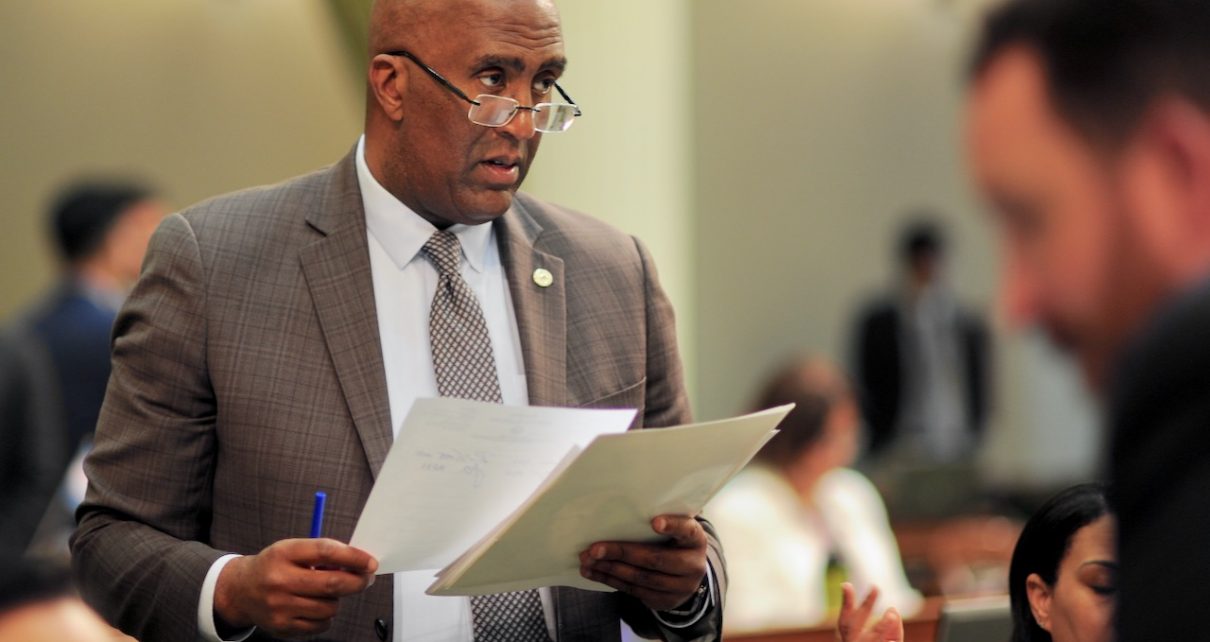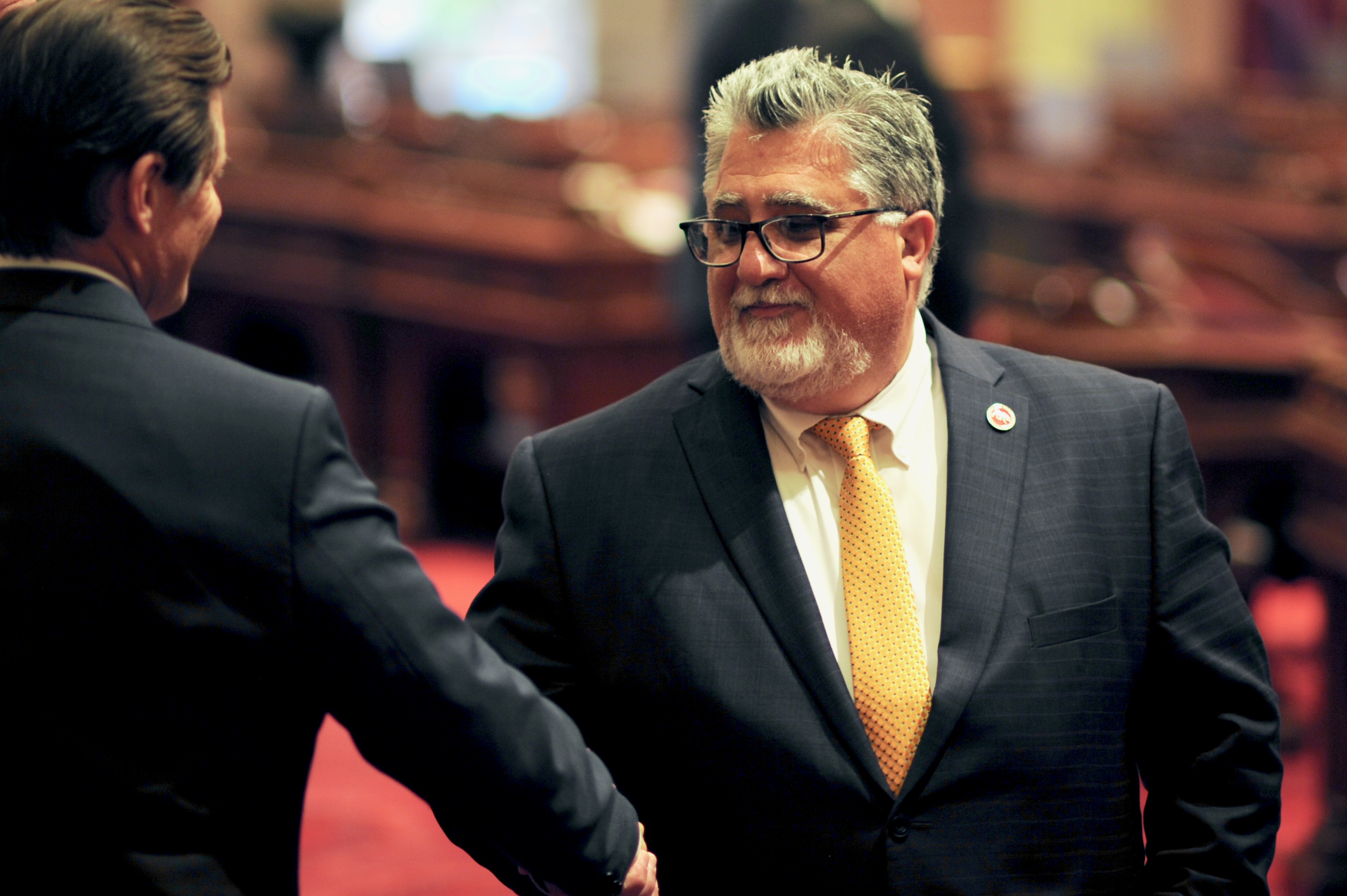
Assemblyman Jim Cooper. (Photo: Kevin Sanders for California Globe)
Bill To Force CalPERS, CalSTRS to Divest From Fossil Fuel Companies Dies in Assembly Committee
Committee Chairman pulls bill over current financial climate
By Evan Symon, June 23, 2022 4:12 pm
A bill that would have had forced both the California Public Employees’ Retirement System (CalPERS) and the California State Teachers’ Retirement System (CalSTRS) to divest from fossil fuel companies they have invested in died in the Assembly on Wednesday after it was pulled by the Committee chairman, Assemblyman Jim Cooper (D-Elk Grove).

Senate Bill 1173, authored by Senator Lena Gonzalez (D-Long Beach), would have specifically prohibited both CalPERS and CalSTRS from making new investments or renewing existing investments of public employee retirement funds in fossil fuel companies. According to the bill, all investments in them would be liquidated by July 2030, with a provision that, should the market have a downturn, they can be sold off as late as January 2035 for the right selling conditions
Boards of both funds would also have to file reports to the legislature which would include lists on which companies they liquidated that year and what remained. Filings would have begun in in February 2024. In total, around $9 billion would ultimately be divested from those companies.
Written by Senator Gonzalez as a way to pull free from fossil fuel investing and remove California’s investing role in climate change contribution, SB 1173 did not have an easy path in the legislature. Originally begun as a 350,org project in 2013, fossil fuel divesting from CalPERS and CalSTRS had slowly grown in strength before finally becoming a bill this year. While mainly opposed by Republicans, many Democrats have also called SB 1173 into question, with many abstaining due to huge divestment loss it would bring, especially with the economic downturn and Russian invasion of Ukraine throwing many prices, including of fossil fuels, into chaos.
While divestment are nothing new, with tobacco, coal, Turkish holdings, and Russian holdings all either being divested from or faced a major challenge for divestment from state pension funds in the past several years, divestment from oil would be, by far, the largest yet.
“Usually divestments are seen as more of a political statement rather than ‘the right right thing to do,’ using heavy quotes on the latter,” explained Pryce Stevens, a investment strategist for several 401(k) plans and pension funds, to the Globe on Thursday. “Oil, it is way riskier. For at least the short term they are strong investments with a high dividend rate. Many also have plans to slowly go into green energy to help stay alive, so divesting actually seems like a rash move if they are eventually going to fall in line anyway. You can see why a lot of people are questioning this decision.”
Fierce opposition against SB 1173
In a Senate vote last month, SB 1173 was passed a rare narrow vote of 21-10 with abstentions due to the uncertainty. Groups such as Fossil Free California, who have backed the bill, have noted that a tremendous effort had been given just to get it to this point so far.
“The bill has definitely faced challenges in every single committee or floor hearing,” said Fossil Free California coordinating director Miriam Eide last month. “It’s not been an easy vote to get through,” she said. “It’s taken a lot of work and a lot of mobilizing of our substantial coalition to get the votes all the way through.”





Liberals hate affordable energy yet love money. Which will win?
Well, CW, I would bet on “the money” winning out over their liberal hate of affordable energy. Here’s why:
“California’s largest public pensions have significant unfunded liabilities. The largest funds at CalPERS and CalSTRS have reported gaps of more than $138.9 billion and $107.3 billion, respectively, between their estimated obligations to retirees and the current value of their assets.”
Instead of leftist virtue signaling, maybe Senator Lena Gonzalez and her Democrat cronies in the legislature should instead focus on the unfunded CalPERS and CalSTRS pensions that are estimated to be at over a trillion dollars?